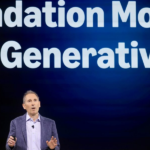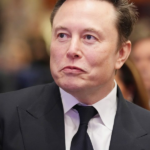As we approach a critical juncture for the market’s most prominent stocks, the pressure mounts on richly valued technology and growth companies to deliver impressive earnings. This challenge comes as elevated bond yields pose a potential threat to the attractiveness of equities.
The extraordinary performance of the “Magnificent Seven” stocks, comprising Apple, Microsoft, Alphabet, Amazon, Nvidia, Tesla, and Meta Platforms, has largely propelled the S&P 500’s impressive 12% year-to-date gains, owing to their significant weighting within the index.
However, this stellar performance has elevated expectations for the upcoming earnings season. Valuations have surged, with the Magnificent Seven boasting an average forward price-to-earnings ratio of 33.5, a stark contrast to the S&P 500’s P/E of 18.3.
Simultaneously, U.S. Treasury yields have reached levels not seen in 16 years, providing a competitive alternative to stocks. With government bonds offering risk-free yields of approximately 5% or more, investors may be less lenient towards companies unable to deliver robust financial results.
Tesla, the first of the megacap companies to report earnings this season, illustrated this challenge as its shares tumbled by 7% when it fell short of Wall Street estimates on third-quarter gross margin, profit, and revenue.
Sameer Samana, senior global market strategist at the Wells Fargo Investment Institute (WFII), expressed the view that these giants are expected to be profitable. However, the real question pertains to the pace of their earnings growth and whether investors have overpaid for it.

Notably, WFII downgraded its rating on the information technology sector, which encompasses Apple, Microsoft, and Nvidia, from “favorable” to “neutral” back in June.
In the weeks ahead, results from Microsoft, Google-parent Alphabet, Amazon, and Facebook-parent Meta are anticipated, with Apple and Nvidia’s earnings reports scheduled for the following month.
Collectively, it’s anticipated that the megacap companies will report a 32.8% earnings increase in 2023, while the remainder of the S&P 500 is projected to see a 2.3% decline, as noted by Tajinder Dhillon, senior research analyst at LSEG.
However, the relentless ascent of interest rates and Treasury yields, driven by a combination of Federal Reserve hawkishness and concerns about the U.S. fiscal outlook, complicates the outlook. Companies focused on growth and technology are seen as more susceptible to higher yields, as their projected future cash flows are less enticing to investors when risk-free government bonds offer higher returns.
The yield on the 10-year Treasury benchmark recently reached 4.94%, its highest level since July 2007.
Tim Pagliara, chairman and chief investment officer at CapWealth, pointed out that the expanded array of investment choices is prompting investors to reconsider their allocations, which may lead to lower returns and greater challenges for the Magnificent Seven to maintain their leadership.
Notably, CapWealth holds Microsoft shares and maintains positions in Apple and Amazon that are below the market benchmark.
Tesla’s CEO, Elon Musk, expressed concerns about the impact of high interest rates on car buyers, underscoring the broader implications of rising rates.
The outstanding performance of the megacap companies has also increased their market influence. Earlier this month, these seven firms collectively accounted for more than 30% of the S&P 500’s overall market value, as reported by LSEG Datastream.
In a recent survey by BofA Global Research, over a third of fund managers identified “long big tech” as the most crowded trade.
Nevertheless, wagering against the market’s frontrunners has historically been an unprofitable venture. The NYSE FANG+ index, which includes the Magnificent Seven, has surged by 140% since the end of 2019, prior to the pandemic, outperforming the S&P 500’s 33% gain.
Some investors are distinguishing between the seven companies. For example, Brandywine Global holds shares of Alphabet and Meta, emphasizing their significant cash generation and comparatively lower valuations compared to their megacap peers.
Patrick Kaser, a portfolio manager at Brandywine Global, noted that although all seven companies are growth-oriented, their sources of growth, stability, and control over it vary considerably.









